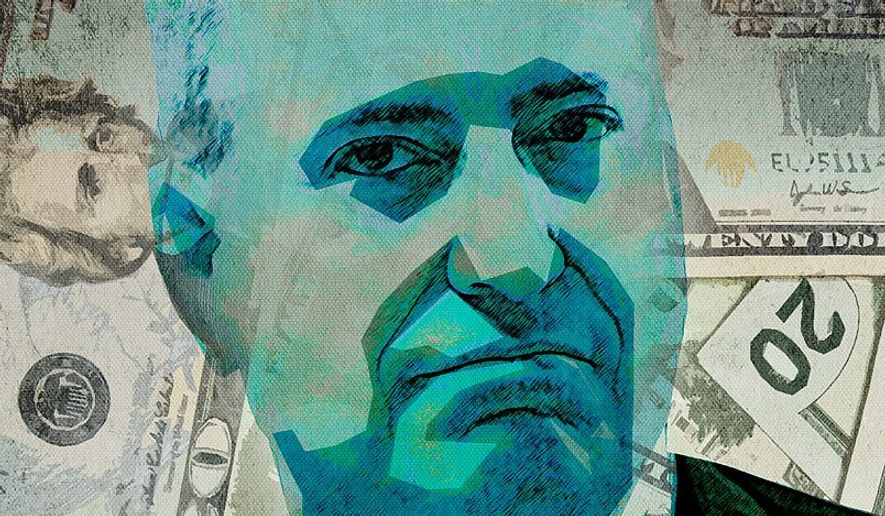OPINION:
“We are a beacon of the world,” New York City Mayor Bill de Blasio recently wrote. Certainly, no one can deny the influence New York City has on this country. That influence is not decreed but earned by hardworking New Yorkers, and, unfortunately, the mayor’s recent actions against manufacturers in America will hurt the very people who make New York City the beacon that it is.
Mr. de Blasio’s misguided plan is twofold: divest public pension funds of fossil fuel investments and sue a handful of energy manufacturers over climate change. Both approaches are ill-considered and politically motivated.
The mayor fails to explain that all five of New York City’s pensions are underfunded significantly. According to a report by the American Council for Capital Formation (ACCF), four out of every five taxpayer dollars collected through New York City’s personal income tax are spent paying down the city’s underfunded public pension system’s liabilities. On top of that, Mr. de Blasio’s 2018 budget has called for yet another increase in pension contributions.
Mr. de Blasio may argue that this change will get the pension system back on track, but not according to the ACCF, which has found that three of the 10 worst-performing private equity funds in which the New York City Employees’ Retirement System is invested were focused on supporting environment, social or governance ventures. That’s not to say they aren’t worthy ventures, but it is at best unclear that this policy focus is consistent with the fiduciary duty of pension managers.
The state’s own comptroller, Tom DiNapoli, has said that divesting pension funds of energy stocks is “not the smartest strategy” and that he would prefer to maintain the leverage an investor has to engage directly with companies. Instead of listening to the comptroller, Mr. de Blasio, like his counterparts in several California municipalities, have sided with activists.
As for Mr. de Blasio’s new lawsuits against manufacturers, they, too, will do little to help the people of his city. Ultimately, there is no legal basis to support these politicized lawsuits, which attempt to use public nuisance laws to blame manufacturers in the United States for the impacts on infrastructure from climate change.
Climate change is a shared challenge, particularly in a city of more than 8.5 million energy-using residents. The courts have found time and again that the political branches of government — Congress and the executive branch — are the proper regulators of carbon emissions, not the courts.
This makes these frivolous lawsuits likely to fail as they have in many other jurisdictions — but not until they have forced manufacturers to spend resources that could otherwise go to supporting workers or investing in communities. Nevertheless, Mr. de Blasio has chosen to enter into what will inevitably be lengthy and expensive litigation that will get New York no closer to finding a real solution to its energy-efficiency and infrastructure challenges.
Make no mistake: all of this is part of a larger effort designed by a cabal of activists to take down manufacturing in America while making plenty of headlines but little positive difference. That is why the National Association of Manufacturers recently launched the Manufacturers’ Accountability Project, which aims to expose these bad actors and their efforts to expand their legal attacks from New York to Boulder to San Francisco.
And we won’t stop there. MAP is taking action, and has just filed requests with the city under the New York Freedom of Information Law so that taxpayers can more fully understand the objectives of the litigation, and the role plaintiffs’ attorneys, politicians and other activists play in it.
“New Yorkers have a loud voice and deep pockets,” Mr. de Blasio has said. As an economic driver of the country, New York, indeed, has earned its loud and powerful voice. But what will the firefighter, teacher and police officer have to say about New York’s “deep pockets” when they must endure the effects of the mayor’s legacy decades from now?
• Jay Timmons is the president and CEO of the National Association of Manufacturers (NAM).




Please read our comment policy before commenting.